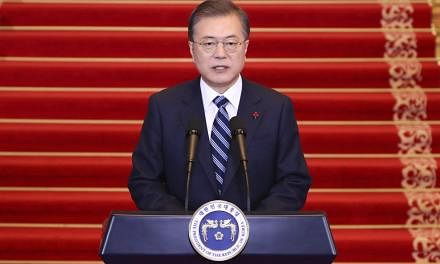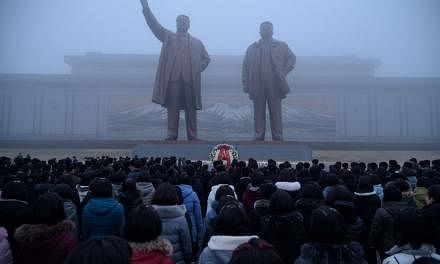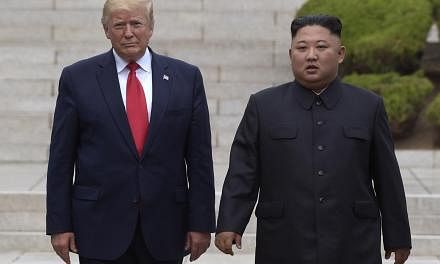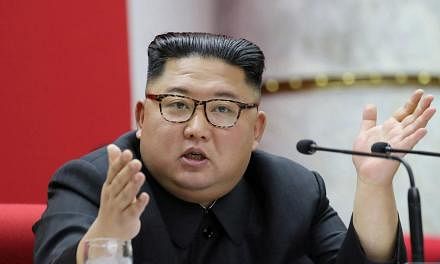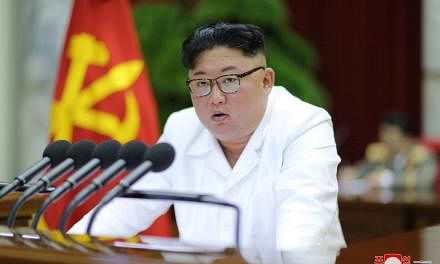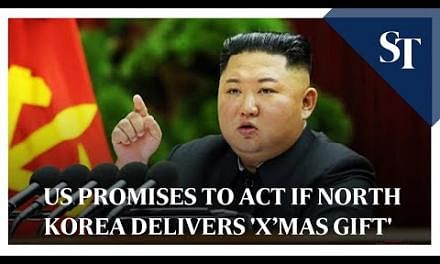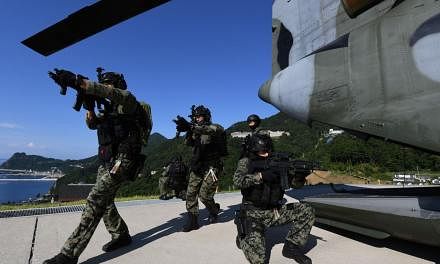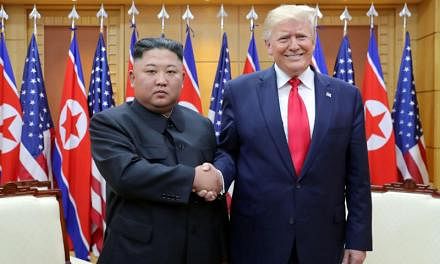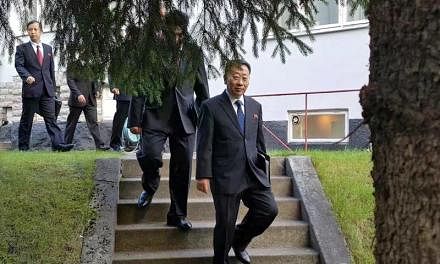The flip-flopping over the highly anticipated June 12 summit between United States President Donald Trump and North Korean leader Kim Jong Un so far exposes the inherent differences in negotiation techniques between the two sides and a lack of mutual understanding, analysts say.
While the Americans play a zero-sum game of chess, the North Koreans play baduk - a more abstract, complex strategy game, Handong Global University's international studies professor Kim Joon Hyung told The Straits Times.
In baduk - also known as Weiqi in China and Go in Japan - a player strategises to gain territory or influence against an opponent, using tactics like divide and conquer. Experts describe it as a battle of wits, and one can win the game even after losing a lot of territory.
"The problem is the US doesn't really understand North Korea's point of view," said Prof Kim.
"Trump thinks of it as a chess game, where you go in to kill the king. But baduk is not like that. It is give and take, getting the opponent to surrender. And it is not winner takes all; it could be 70-30 or 80-20.
"You have got to give North Korea something. They are unilaterally conceding a lot but never receiving anything in return," said Prof Kim.
North Korea has so far released American hostages, halted nuclear testing and even blown up its nuclear test site. But the US insists on complete, verifiable and irreversible denuclearisation before sanctions can be lifted.
North Korea's sudden flip-flopping also comes as no surprise to other experts on Korean peninsula affairs, as the regime has used the same tactics for years to gain leverage and extract concessions.
Professor Andrei Lankov, a North Korean expert from Kookmin University, said Pyongyang would often begin by behaving in a "highly risky and irrational way, creating an acute sense of crisis".
He told CNN: "When almost everybody is beginning to wonder whether the North Koreans are really going to strike, or start a war, or do something, North Korea suddenly suggests negotiations, and then extracts concessions for its willingness to go back to the status quo."
Experts also said that North Korea had always resorted to brinkmanship to gain concessions without paying a price from the Cold War era.
Decades have passed since, with a third-generation leader Kim now in power.
But North Korea's negotiation tactics still reflect the Cold War socialist style, said Dr Lee Seong Hyon, a research fellow at the Sejong Institute think-tank.
He added: "Simply put, they see negotiation as a war, not as a process of pursuing a win. It is brutal, bloody."
The "trail of broken promises" and ignored phone calls were not unusual, being in fact part of the North's negotiating tactics, ac-cording to diplomats and analysts with experience in dealing with Pyongyang.
"North Korea has perfected the art of playing hard to get," Korean studies professor Lee Sung Yoon of the Fletcher School of Law and Diplomacy told ST.
"North Korea routinely lies in your face, threatens to walk out in the middle of meetings (and often does), and shows up at the last minute, leaving the other party hanging. It is an elaborate psychological game in getting the adversary to chase and concede."
Strategic ambiguity was also a major asset in North Korean negotiating tactics, he said.
"(For them), 'maybe' usually means no. Americans are often confused by this."
Mr Mintaro Oba, a former State Department official who worked on North Korea policy, said the US "suffered from either an inability or an unwillingness to put North Korean actions into context". He said: "If it had truly understood the typical way North Korea behaves and the interests behind Pyongyang's actions, it certainly shouldn't have cancelled the summit."
But the two leaders, often described as impetuous and unpredictable, appear to have met their match in each other. Both are now trying to raise the stakes, pushing each other to the extreme.
Dr Lee of Sejong Institute said: "In a way, North Korea and Trump have similar negotiation tactics. I think Trump likes it because he likes a high-stakes challenge; if he wins, he wins big."
Professor Justin Fendos of Donseo University noted that Mr Kim uses more emotion, unlike his father, Mr Kim Jong Il, who died in 2011.
"His father generally adopted stricter and more militaristic language. (The younger) Kim has thus far spoken with much more emotion, using language that evokes more hope and idealism. Although most Western media have dismissed his overtures as an act, I am not so sure. Given the way North Korea has approached the whole process with real concessions, I think they might actually be willing to do a deal," he told ST.
Dr Lee urged Mr Trump to soothe the North's vulnerability about giving up all of its nuclear programme, such as being more concrete about the rewards for the regime.
"I have this strange sense that Trump and Kim will hit it off very well when they meet in Singapore. In negotiation, they are a mirror image to each other."


